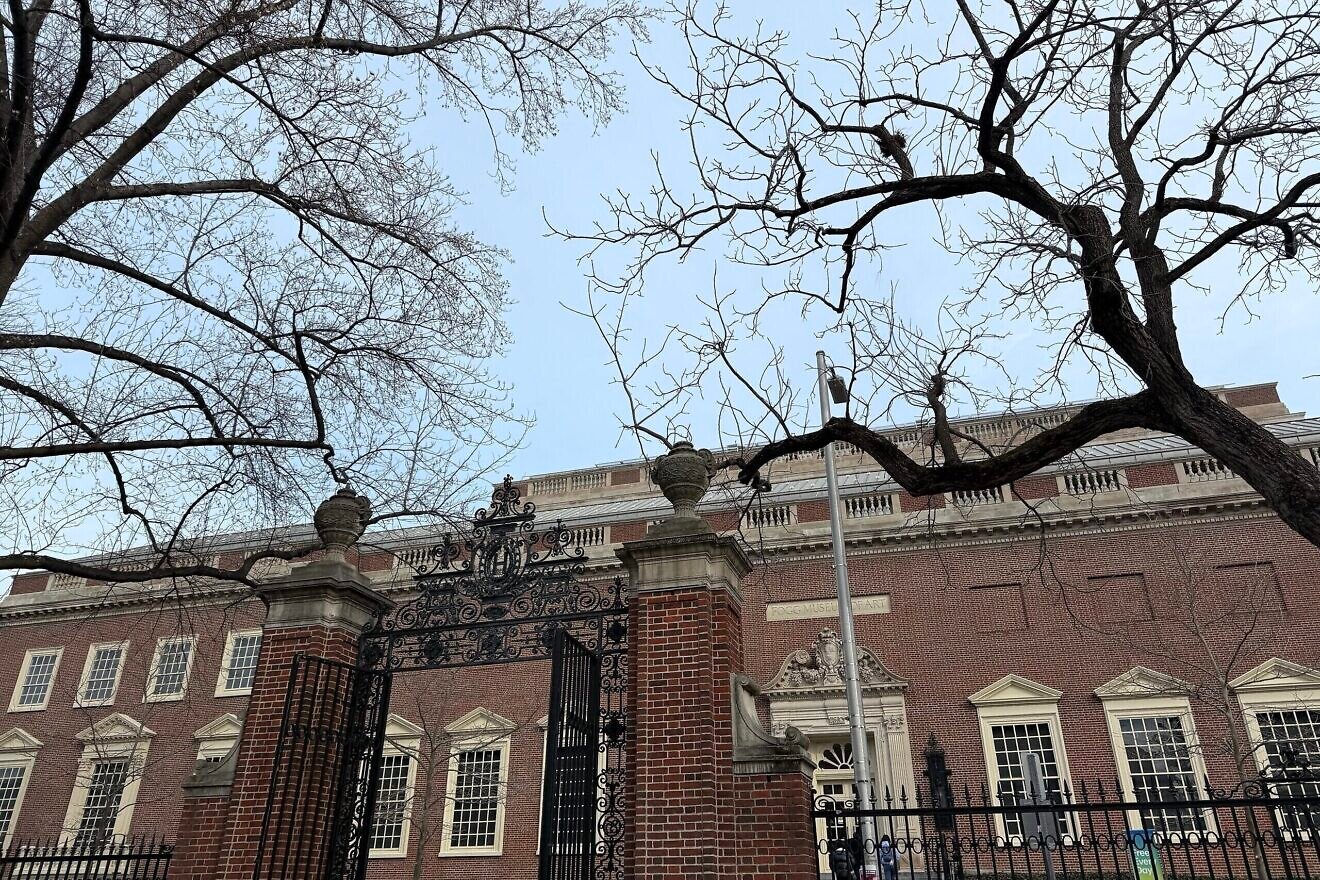 Każda umowa, która pozwala Hamasowi zachować arsenał broni, po prostu daje islamistom zielone światło na kontynuowanie dżihadu przeciwko Izraelowi. Żądanie, by tylko odsunąć Hamas od władzy w Strefie Gazy, jest stratą czasu. (Zdjęcie: Terroryści Hamasu demonstrujący swoje uzbrojenie podczas „ceremonii” przekazywania porwanych Izraelczyków pracownikom Czerwonego Krzyża. (Zrzut z ekranu.)
Każda umowa, która pozwala Hamasowi zachować arsenał broni, po prostu daje islamistom zielone światło na kontynuowanie dżihadu przeciwko Izraelowi. Żądanie, by tylko odsunąć Hamas od władzy w Strefie Gazy, jest stratą czasu. (Zdjęcie: Terroryści Hamasu demonstrujący swoje uzbrojenie podczas „ceremonii” przekazywania porwanych Izraelczyków pracownikom Czerwonego Krzyża. (Zrzut z ekranu.)
 Dlaczego nie wolno pozwolić Hamasowi na zatrzymanie broni
Dlaczego nie wolno pozwolić Hamasowi na zatrzymanie broni
Khaled Abu Toameh
Tłumaczenie: Małgorzata Koraszewska
Gdy wojna w Strefie Gazy zbliża się do dwudziestego miesiąca, wspierana przez Iran terrorystyczna grupa Hamas po raz kolejny powtórzyła odmowę rozbrojenia. Twierdzi, że broń jest potrzebna do kontynuowania walki z Izraelem. Ci, którzy wierzą, że Hamas kiedykolwiek zgodzi się złożyć broń, żyją w świecie marzeń. Niestety, istnieje tylko jeden sposób przekonania Hamasu do rozbrojenia: siła militarna.
Niedawno dwóch wysokich rangą funkcjonariuszy Hamasu, Mahmoud Mardawi i Bassam Naim, ogłosiło, że ich grupa całkowicie odrzuca wszelkie propozycje związane ze złożeniem broni. Powiedzieli, że inne palestyńskie grupy terrorystyczne w Strefie Gazy również odrzucają wszelkie plany rozbrojenia.
„Broń [palestyńskiego] ruchu oporu reprezentuje życie narodu palestyńskiego i nie można jej oddać w żadnych okolicznościach” – powiedział Mardawi w oświadczeniu dla stacji telewizyjnej Al-Aqsa należącej do Hamasu. Dodał, że Hamas na żadnym etapie „nie będzie negocjował w sprawie swojej broni ani osób, które ją noszą. Samo rozpoczynanie dyskusji na ten temat jest całkowicie niedopuszczalne”.
Naim powiedział także, że Hamas nie złoży broni i że „opór będzie trwał tak długo, jak długo będzie trwała [izraelska] okupacja”.
Izrael jednak skutecznie zakończył „okupację” Strefy Gazy w 2005 r., kiedy całkowicie wycofał się z całego pasa przybrzeżnego. Ewakuacja ta jednak nie powstrzymała Hamasu przed kontynuowaniem kampanii terrorystycznej przeciwko Izraelowi, w tym wystrzeliwania rakiet i pocisków w kierunku izraelskich miast i miasteczek. Hamas kontynuował ataki na Izrael, ponieważ nie wierzy w prawo Izraela do istnienia i uważa cały obszar rozciągający się od rzeki Jordan do Morza Śródziemnego za „terytoria okupowane”. Hamas nie został utworzony, aby zakończyć izraelską „okupację” Strefy Gazy. Jedynym celem, dla którego utworzono Hamas, jest likwidacja Izraela i zastąpienie go państwem islamistycznym.
Artykuł 7 Karty Hamasu określa Żydów mieszkających w Izraelu jako „najeźdźców” i zobowiązuje do rozpoczęcia przeciwko nim dżihadu (świętej wojny):
„Islamski Ruch Oporu [Hamas] jest jednym z ogniw w łańcuchu walki z syjonistycznymi najeźdźcami. Jego początki sięgają 1939 r., pojawienia się męczennika Izz al-Din al Kassama i jego braci bojowników, członków Bractwa Muzułmańskiego. Następnie dociera do innych ogniw i staje się jednym z łańcuchem, który obejmuje walkę Palestyńczyków i Bractwa Muzułmańskiego w wojnie w 1948 r. oraz operacje dżihadu Bractwa Muzułmańskiego w 1968 r. i później…
[Ruch oporu islamskiego] dąży do realizacji obietnicy Allaha, bez względu na to, jak długo to potrwa. Prorok [Mahomet], niech Allah go błogosławi i obdarzy zbawieniem, powiedział: ‘Dzień Sądu nie nadejdzie, dopóki muzułmanie nie zaczną walczyć z Żydami (zabijając Żydów), kiedy to Żydzi będą się chować za kamieniami i drzewami. Kamienie i drzewa powiedzą: O muzułmanie, o Abdulla, za mną jest Żyd, przyjdź i zabij go’”.
Artykuł 11 karty stanowi:
„Islamski Ruch Oporu wierzy, że ziemia Palestyny jest islamskim Wakf poświęconym przyszłym pokoleniom muzułmanów aż do Dnia Sądu [Ostatecznego]. Ani jej, ani jej części, nie wolno marnować: ani jej, ani jej części, nie wolno oddawać. Ani pojedynczy kraj arabski, ani wszystkie kraje arabskie, ani żaden król ani prezydent, ani wszyscy królowie i prezydenci, ani żadna organizacja, ani wszyscy oni, czy to Palestyńczycy, czy Arabowie, nie mają prawa tego robić”.
Hamas, odłam organizacji Bractwa Muzułmańskiego, uważa, że obowiązkiem każdego muzułmanina jest angażowanie się w dżihad przeciwko Izraelowi. Jeśli chodzi o Hamas, zgodnie z jego Kartą:
„Wyzwolenie Palestyny [eufemizm oznaczający zniszczenie Izraela] jest zatem indywidualnym obowiązkiem każdego muzułmanina, gdziekolwiek by się znajdował. Na tej podstawie należy rozpatrywać problem. Każdy muzułmanin powinien to zrozumieć… Konieczne jest wpojenie w umysły pokoleń muzułmańskich, że problem palestyński jest problemem religijnym i należy się nim zająć na tej podstawie”.
W rzeczywistości nie ma żadnej różnicy między Hamasem a organizacją Bractwa Muzułmańskiego. Hamas nie tyle jest odnogą Bractwa Muzułmańskiego, co jego przedłużeniem. To powiązanie jest powodem, dla którego administracja Trumpa musi uznać Bractwo Muzułmańskie za Zagraniczną Organizację Terrorystyczną.
Widzieliśmy, jak zwolennicy Bractwa Muzułmańskiego w Egipcie, Jordanii i innych krajach arabskich okazali poparcie Hamasowi, zwłaszcza po inwazji na Izrael 7 października 2023 r., która doprowadziła do zamordowania 1200 Izraelczyków i zranienia tysięcy. Kolejnych 251 Izraelczyków porwano do Strefy Gazy, gdzie 59 – żywych i martwych – nadal jest przetrzymywanych jako zakładnicy.
Hamas nie widzi różnicy między izraelskim żołnierzem a izraelskim cywilem. Dla Hamasu każdy w Izraelu jest „syjonistycznym najeźdźcą”. Ten pogląd jest powodem, dla którego Hamas atakuje Żydów nie tylko na Zachodnim Brzegu [Judei i Samarii] i w Strefie Gazy, ale także w Tel Awiwie, Jerozolimie, Hajfie i innych izraelskich miastach.
Hamas chce zachować broń, aby móc zabijać nawet tych Żydów, którzy „chowają się za kamieniami i drzewami”. Hamas chce również zachować broń, aby móc nadal uciskać Palestyńczyków, którzy ośmielają się wypowiadać przeciwko tej grupie terrorystycznej. Ta stara, ale niezawodna metoda kontroli jest sposobem, w jaki Hamasowi udało się utrzymać władzę przez ostatnie dwie dekady.
Każda umowa, która pozwala Hamasowi zachować arsenał broni, po prostu daje islamistom zielone światło na kontynuowanie dżihadu przeciwko Izraelowi. Żądanie, by tylko odsunąć Hamas od władzy w Strefie Gazy, jest stratą czasu.
Khaled Abu Toameh – urodzony w 1963 r. w Tulkarem na Zachodnim Brzegu, arabski dziennikarz, któremu wielokrotnie grożono śmiercią. Publikował między innymi w “The Jerusalem Post”, “Wall Street Journal”, “Sunday Times”, “U.S. News”, “World Report”, “World Tribune”, “Daily Express” i palestyńskim dzienniku “Al-Fajr”. Od 1989 roku jest współpracownikiem i konsultantem NBC News. (Mieszka w Izraelu.)
Zawartość publikowanych artykułów i materiałów nie reprezentuje poglądów ani opinii Reunion’68,
ani też webmastera Blogu Reunion’68, chyba ze jest to wyraźnie zaznaczone.
Twoje uwagi, linki, własne artykuły lub wiadomości prześlij na adres:
webmaster@reunion68.com






